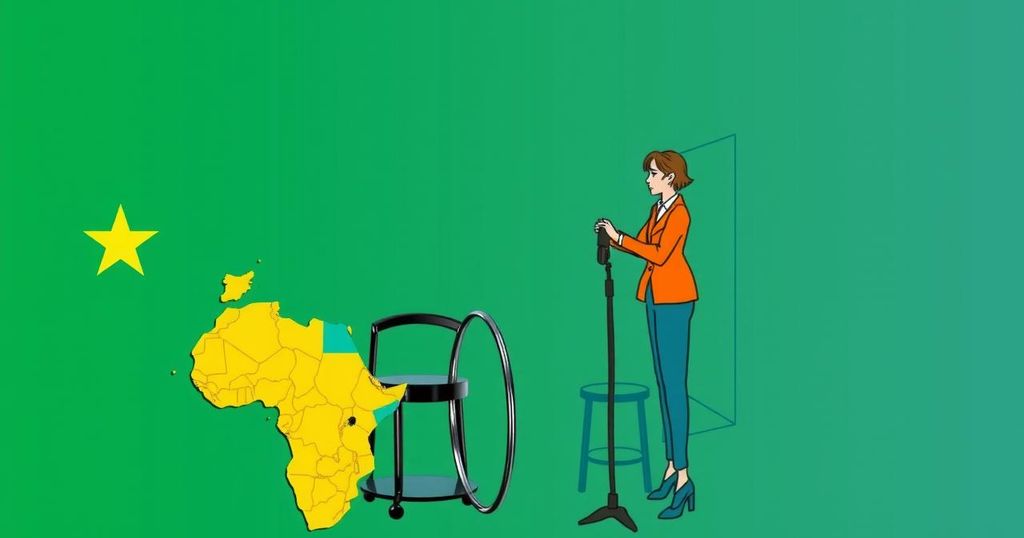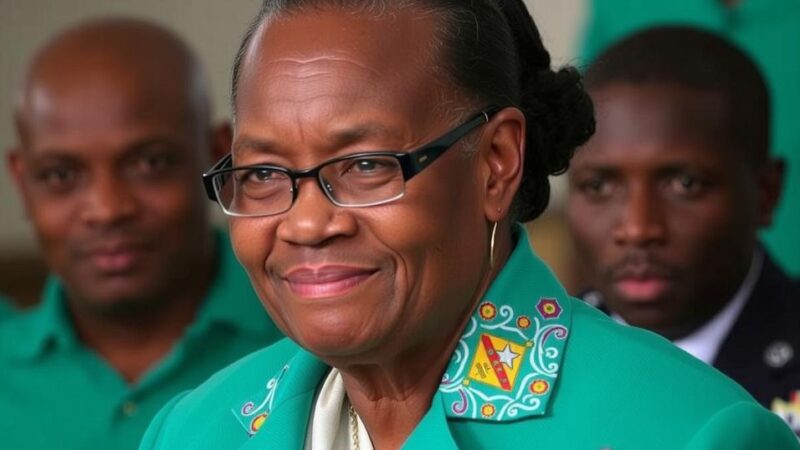A recent announcement by President Felix Tshisekedi to form a commission to draft a new constitution for the DRC is inciting controversy, particularly regarding the proposed abolition of the two-term limit for presidential candidates, allowing him to run for a third term. This proposal is facing strong opposition from various political groups, including the FCC, as well as from civil society and the Catholic Church, highlighting concerns over political stability and governance in the DRC.
The recent declaration by President Felix Tshisekedi of the Democratic Republic of Congo (DRC) regarding the establishment of a commission to draft a new constitution has ignited a heated debate within the nation. During his visit to Kisangani, President Tshisekedi stated, “Next year I will appoint a commission made up of people from different sectors of society to draft a new constitution that is adapted to the realities of the Democratic Republic of Congo and no longer hinders the functioning of the country.” A pivotal element of this proposed constitutional change is the elimination of the current two-term limit for presidential candidates, which would allow President Tshisekedi to potentially seek a third term in the forthcoming elections. As it stands, he has already been elected twice, barring him from competing in the next presidential race under existing legal frameworks. This constitutional amendment proposal bears historical significance, as it echoes similar attempts made by former President Joseph Kabila in 2015, which faced substantial backlash from civil society, including opposition from prominent Catholic bishops. Ironically, Kabila’s own opposition party, the Front commun pour le Congo (FCC), is now staunchly against the amendment. Opposition political figure Moïse Katumbi has also voiced his disapproval, insisting that “the constitution will not be changed.” Moreover, Donatien Nshole, Secretary General of the Congolese Episcopal Conference (CENCO), expressed concerns, stating, “A change to the constitution is very dangerous because it can further destabilize the country in the current situation in which it is unstable.”
The discussion surrounding the proposed amendment to the DRC’s constitution is deeply rooted in the political history and governance challenges faced by the country. The two-term presidential limit was established to prevent the concentration of power and ensure democratic transitions. However, amendments to this rule have previously been attempted, most notably by former President Joseph Kabila, resulting in widespread civil unrest and political opposition. The current context sees a fragile political landscape, with various factions vying for power and stability. The debate illuminates significant concerns regarding democratic integrity, governance, and the political future of the Democratic Republic of Congo as it prepares for the next presidential elections.
The proposal by President Felix Tshisekedi to amend the constitution of the Democratic Republic of Congo by removing the two-term limit for presidential candidates is a contentious issue that has rekindled historical debates about governance and political stability in the country. As Tshisekedi aims to create a commission for this purpose, significant opposition has emerged from both political and religious sectors, emphasizing the potential risks associated with such constitutional changes. The discussions ahead will be crucial in determining the direction of DRC’s political landscape and the impact on its stability.
Original Source: www.fides.org







